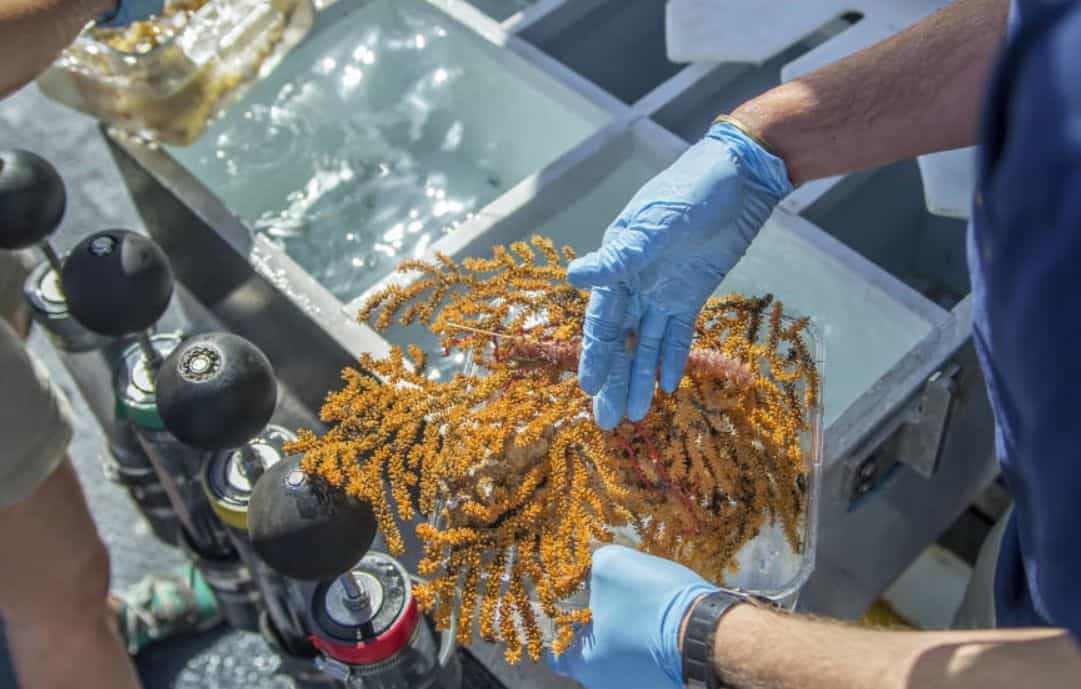To locate them, at 3,400 meters deep, they have used state-of-the-art remote-controlled vehicles (ROVs)
An international team of marine scientists has discovered 30 new species of invertebrates in the deep waters surrounding the Galapagos Islands (Ecuador).
Researchers have located new coral and sponge communities, including ten bamboo corals, four octocorals, a brittle starfish and eleven sponges, as well as four new species of crustaceans, known as chubby lobsters.
To examine the seabed, around 3,400 meters deep, they used state-of-the-art remote-controlled vehicles (ROVs).
Much to discover
“The deep sea remains as earth’s last frontier and this study provides a sneak-peek into the least known communities of the Galapagos Islands,” explains marine scientist Pelayo Salinas de Leon, of the Ocean Exploration Trust (a non-profit organization dedicated to marine research), who led the study, in statements cited by Science Alert.
The researchers for the first time explored three seamounts located near the islands Darwin and Wolf, in the north of the archipelago, an area that is home to the largest population of sharks in the world.
“These pristine seamounts are within the Galapagos Marine Reserve and are protected from destructive human practices such as fishing with bottom trawls or deep-sea mining that are known to have catastrophic impacts upon fragile communities. Now it is our responsibility to make sure they remain pristine for the generations to come,” adds Salinas de Leon.
“The many discoveries made on this expedition showcase the importance of deep-sea exploration to developing an understanding of our oceans,” says Nicole Raineault, scientific head of Ocean Exploration Trust.
The Galapagos archipelago, located 1,000 kilometres west of Ecuador, is a fragile ecosystem that is home to the largest number of different animal species on the planet.
The importance of Galapagos
Paulo Proano, Ecuadorian Minister of the Environment, has indicated that the finding confirms that Galapagos is a living laboratory with biological and ecological processes underway and yet to be explored, which makes the archipelago an exceptional site that needs all efforts to be conserved.
The research team is made up of different multidisciplinary professionals. Thus, as detailed, they use scientists who observe the dives of the ROVs from home and communicate directly with the onboard equipment in real-time, to help determine what is really new and worthy of further investigation or sampling.
“Scientists studying the resulting video, data, and specimens make an astonishing number of discoveries, reminding us how little we know about the deep sea,” Raineault concludes.
